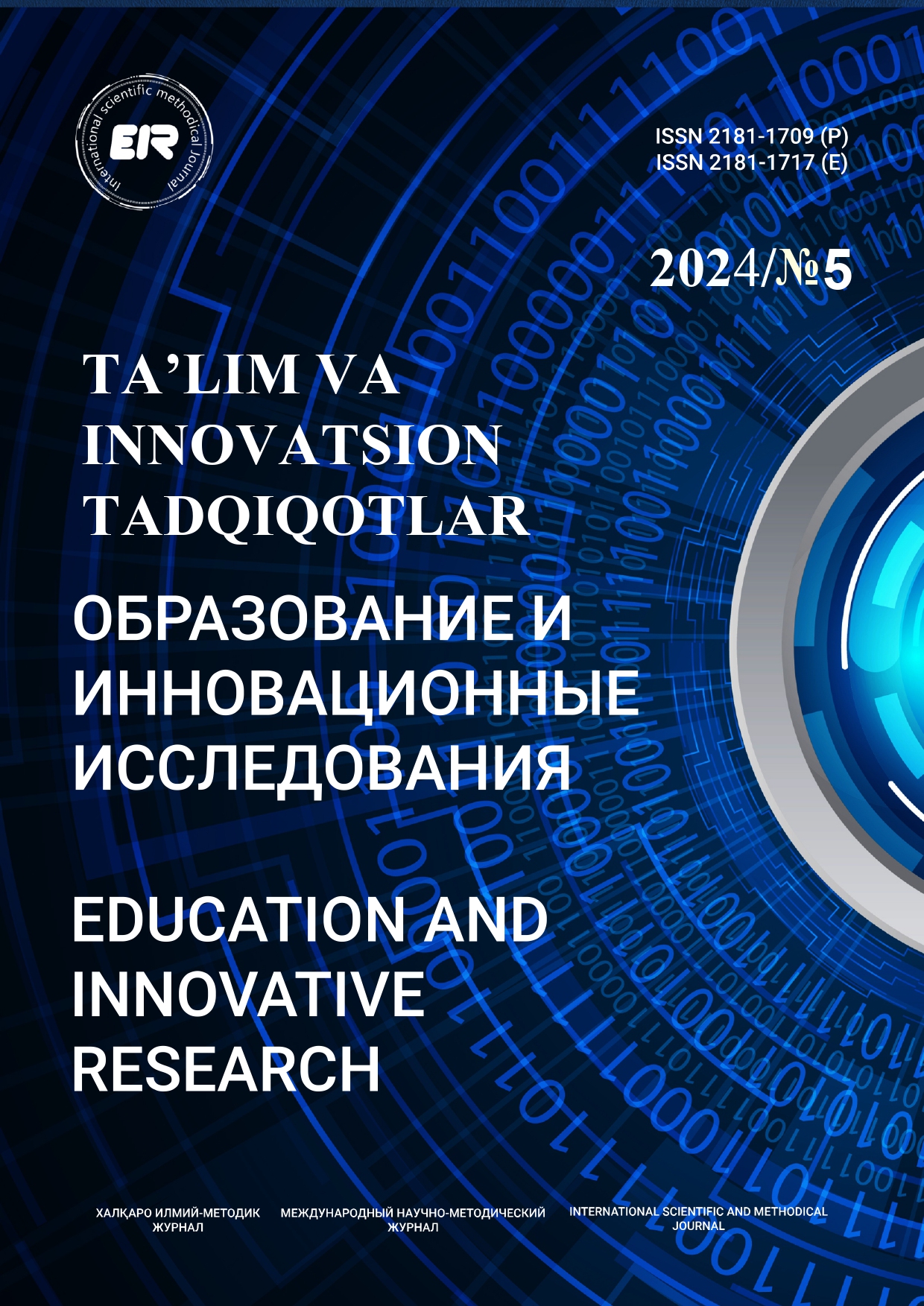ЭФФЕКТИВНОСТЬ ИСПОЛЬЗОВАНИЯ ВИРТУАЛЬНОГО ОПЫТА В ОБУЧЕНИИ СТУДЕНТОВ В ЛАБОРАТОРИИ ОБЩЕЙ ФИЗИКИ
Абдихамидова Сония, преподаватель кафедры точных наук Бухарского государственного педагогического института, Эрдонова Феруза Бухарского государственного педагогического института, студентка 2 курса
Ключевые слова:
виртуальная лаборатория, смешанное обучение, лабораторная работа, секреты успеха в физике, квазиэкспериментальная конструкция, дренажная водная толща.Аннотация
В основу исследования положено изучение эффективности использования виртуальных экспериментов, уровня успешного усвоения знаний и практических навыков студентов, их взглядов на использование виртуальных экспериментов в общей физике, влияния использования виртуальных экспериментов, лабораторий на успеваемость студентов. изучение физики, и ведутся споры о том, могут ли эти виртуальные эксперименты заменить или улучшить деятельность студентов в реальной лаборатории. Кроме того, существует необходимость в разработке эффективной среды обучения, которая может лучше соответствовать и поддерживать характеристики студентов в настоящее время. Цифровой век. Методология. Смешанная методология исследования, включающая квазиэкспериментальный дизайн с научными исследованиями и прикладными навыками, отражает достижения учащихся, и в результате в этом исследовании изучается влияние использования виртуальных лабораторий на уровень успеваемости в изучении физики. Презентации. Теоретическая перспектива этого учебного дизайна заключается в конструктивном обеспечении, при котором учащиеся могут взаимодействовать с контентом онлайн-обучения в любое время и в любом месте.
Библиографические ссылки
Adegoke, B. D. va Chukvunenye, N. (2013). Talabalarning amaliy fizika fanidan bilim olish natijalarini yaxshilash, qaysi yaxshiroq? Kompyuterda simulyatsiya qilingan tajribami yoki amaliy tajribami? IOSR tadqiqot va metodika jurnali Taʼlim (IOSR-JRME), 2(6), 18-26. https://doi.org/10.9790/7388-0261826
Aljanazrah, A. M. (2006). Kimyo o‘qituvchisining malakasini oshirishning yangi modelini ishlab chiqish, joriy etish va baholasharalash ta’limga asoslangan. Shaker Verlag.
Aljuhani, K., Sonbul, M., Althabiti, M., & Meccawy, M. (2018). Virtual fan laboratoriyasini (VSL) yaratish: Saudiya maktablarida virtual laboratoriyalarni qabul qilish. Smart Learning Environmentshttps://doi. org/10.1186/s40561-018-0067-9
Alneyadi, S. S. (2019). Fan savodxonligida virtual laboratoriyani amalga oshirish: EURASIA Journal of Mathematics, Science and Technology Education, 15(12), 1-10. https://doi.org/10.29333/ejmste/109285
Altun, E., Demirdağ, B., Feyziog’lu, B., Ateş, A., & Çobanoğlu, İ. (2009). Interaktiv virtualni rivojlantirish umumta’lim maktablari uchun konstruktiv ta’lim faoliyati bilan boyitilgan kimyo laboratoriyasi. Procedia- ijtimoiy va xulq-atvor fanlari, 1 (1), 1895-1898. https://doi.org/10.1016/j.sbspro.2009.01.333
Ambusaidi, A., Al Musawi, A., Al-Balushi, S., & Al-Balushi, K. (2018). 9-sinf o‘quvchilarining yutuqlariga virtual laboratoriyadagi o‘quv tajribalarining ta’siri va ularning virtual laboratoriya orqali fan va o‘rganishga munosabati. Journal of Turk Science Education, 15(2), 13-29. https://doi.org/10.11114/jets.v5i11.2743.
Banchi, H. va Bell, R. (2008). Ko‘p darajadagi so‘rovlar. Fan va bolalar, 46(2), 26-29.
Jurayeva N.O. Specific aspects and principles of the method of organizing independent education of students. Actual problems of modern science, education and training”. №8, Хоrazm, 2022. – P. 23-27.
Jo’rayeva N.O. Mobile Softwareanwendungen zur Organisation unabhängiger Bildung// Berlin Studies Transnational Journal of Science and Humanities. Vol. 2, Issue 1.5 (2022), – P. -661-664.
С.Ходжиев, Н.О.Жўраева. Некоторые указания и решением текстовые задачи связанные с работой. Pedagogik akmeologiya (maxsus son), 2022. -114-122





